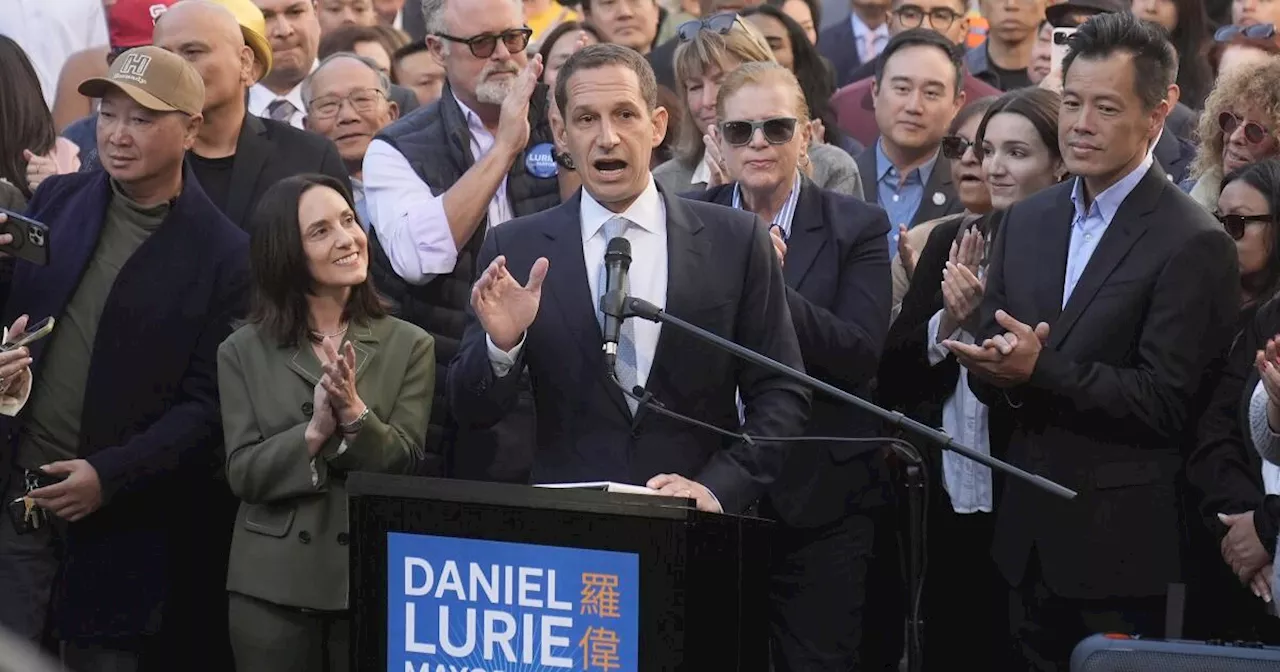San Francisco Mayor Daniel Lurie has gained significant momentum in his efforts to address the city's twin crises of homelessness and fentanyl addiction. He secured approval from the Board of Supervisors to expedite the expansion of shelter capacity and treatment programs, bypassing bureaucratic hurdles, and to pursue private funding to support these initiatives. The measure, dubbed the Fentanyl State of Emergency Ordinance, marks a pivotal step in Lurie's campaign pledge to reduce visible homelessness and open-air drug use within six months.
San Francisco Mayor Daniel Lurie has achieved an early victory in his mission to combat the city's dual crises of homelessness and fentanyl addiction. He secured approval from the influential Board of Supervisors to expedite the expansion of shelter capacity and treatment programs , bypassing bureaucratic roadblocks that have hampered progress. Additionally, Lurie gained greater flexibility to pursue private funding sources to support these initiatives.
This measure, known as the Fentanyl State of Emergency Ordinance, marks Lurie's first significant step towards fulfilling his campaign pledge to visibly reduce homeless encampments and open-air drug use within six months of taking office. This pledge involved adding 1,500 shelter beds and expanding behavioral and mental health services. Lurie, a moderate Democrat and political newcomer, triumphed in the November election against incumbent London Breed and three other veteran City Hall figures whom he accused of allowing homelessness, addiction, and related issues like retail and property crimes to escalate. During a news conference at City Hall preceding the signing of the legislation, Lurie emphasized that the new authority will enable his administration to 'act swiftly and effectively.' 'The fentanyl crisis is not a nine-to-five operation,' Lurie stated. 'It doesn't take breaks, and neither will we.' Lurie introduced the ordinance shortly after his January inauguration and spent the past month negotiating its passage with the San Francisco Board of Supervisors, an 11-member body serving as the city's legislative branch. The supervisors granted the ordinance their final approval in a decisive 10-1 vote on Tuesday. This overwhelming support signifies a dramatic shift in the power dynamic between the mayor and the board, whose leadership has traditionally been viewed as strongly progressive. The board frequently opposed Breed, a fellow centrist Democrat, in her efforts to adopt a tougher stance on crime by cracking down on drug dealers and strengthening police powers. The November election resulted in a turnover on the board, as voters disillusioned with sprawling homeless encampments and blatant drug use sought to reshape local governance. The newly constituted board comprises five new members and exhibits a more moderate inclination.'Progressives are much reduced on the board, and the ones that have been sort of progressive before are more toward the center now,' commented Jason McDaniel, a political science professor at San Francisco State University. 'I do think that the board and the mayor have a common sort of goal of ... trying to solve some of these problems that the electorate seems to still be quite upset about.' Supervisor Rafael Mandelman, appointed president of the board last month, collaborated with Lurie on amendments to narrow the ordinance's scope in ways that appeased the board's more liberal members and secured a majority vote. Mandelman is among the supervisors who have shifted towards the political center in recent years. He was initially elected in 2018 as a progressive representing the Castro district. The ordinance streamlines the city's emergency response to homelessness and drug use by temporarily enhancing the mayor's authority — and diminishing the board's role — in approving city contracts related to homelessness, addiction, and mental health. It expedites the hiring procedures for outreach workers and public safety personnel tasked with staffing shelters. It also exempts such contracts from the city's stringent competitive bidding process until 2026. The board retains the opportunity to review contracts valued between $10 million and $25 million, but the ordinance mandates supervisors to act within 45 days of a contract proposal. A crucial aspect of the ordinance enables Lurie and designated members of his administration over the next six months to solicit private donations up to $10 million for these initiatives from individuals conducting business with the city. This provision waives a prohibition on behested payments from 'interested parties,' a broad category encompassing contractors, lobbyists, and companies. This allowance empowers Lurie, an heir to the Levi Strauss family fortune, to leverage his network of affluent connections within the tech and business sectors accumulated through his family's longstanding involvement in philanthropy and his own experience as an executive in an anti-poverty nonprofit organization. The external funding could help bridge a projected budget deficit nearing $1 billion and avert cuts to homelessness and treatment services that could undermine Lurie's efforts. Lurie stated that the relaxed regulations will facilitate the city's establishment of a 24/7 'stabilization center' in the heart of the Tenderloin district for law enforcement to transport individuals requiring medical attention, offering an alternative to jail and emergency rooms. The waiver prompted concerns among a few supervisors, who urged Lurie to exercise his powers judiciously and alluded to a series of embarrassing scandals that have rocked City Hall in recent years.
Homelessness Fentanyl San Francisco Mayor Daniel Lurie Board Of Supervisors State Of Emergency Private Funding Treatment Programs Shelter Capacity
United States Latest News, United States Headlines
Similar News:You can also read news stories similar to this one that we have collected from other news sources.
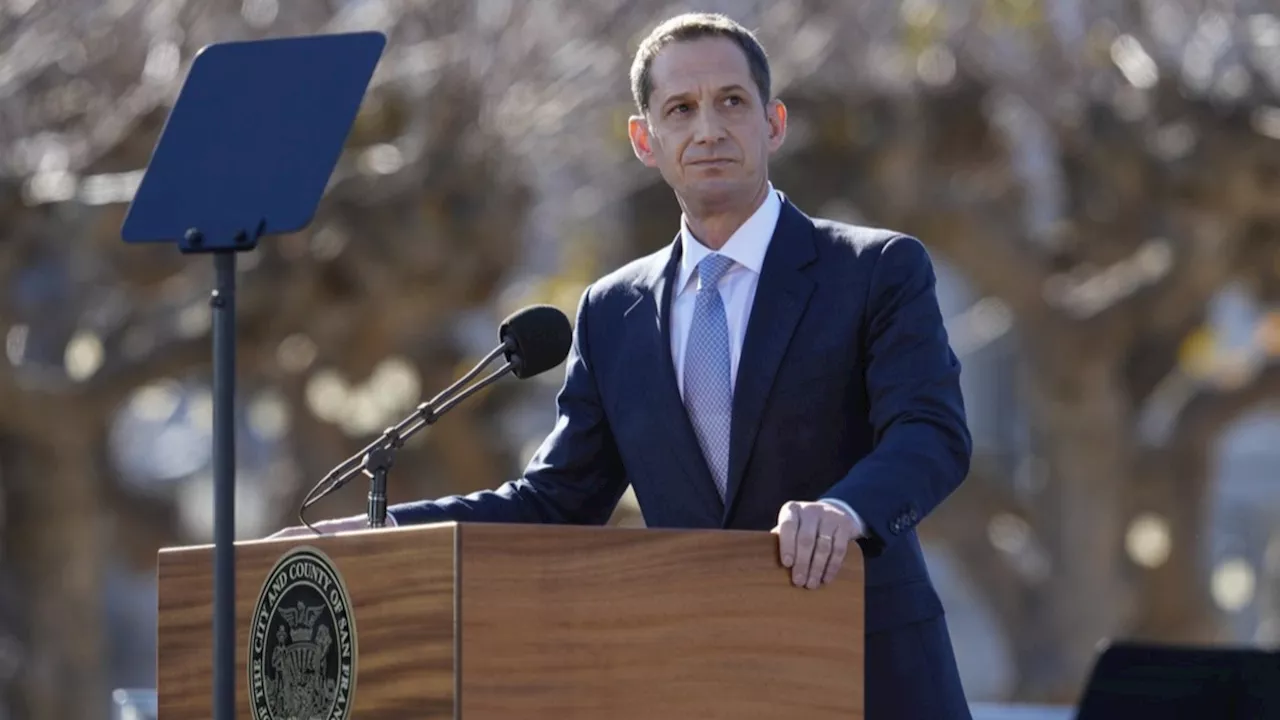 San Francisco Mayor Daniel Lurie introduces new fentanyl ordinanceMayor Lurie sent the Board of Supervisors his first proposed law to combat the fentanyl crisis, taking action during his first week as leader of the city. Here's what it will do.
San Francisco Mayor Daniel Lurie introduces new fentanyl ordinanceMayor Lurie sent the Board of Supervisors his first proposed law to combat the fentanyl crisis, taking action during his first week as leader of the city. Here's what it will do.
Read more »
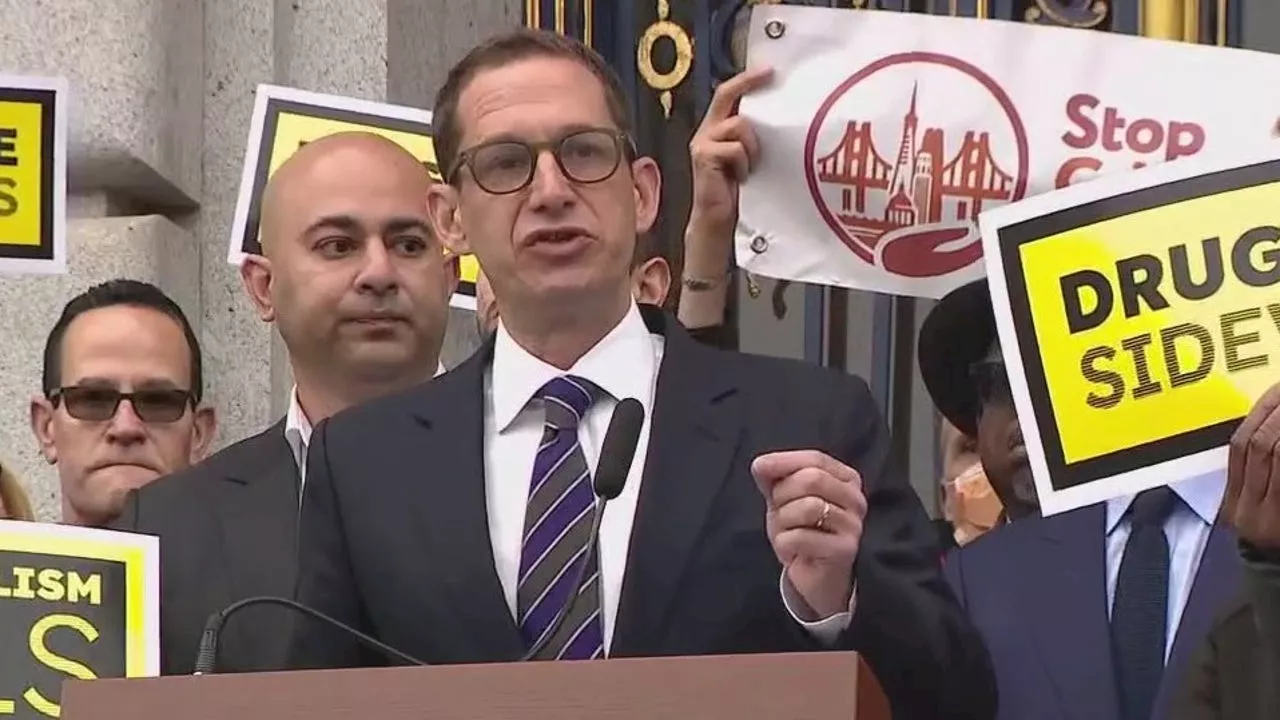 Lurie's Fentanyl State of Emergency Ordinance Gains Momentum in San FranciscoSan Francisco Mayor Daniel Lurie is making significant progress in addressing the city's fentanyl and homelessness crises with a proposed ordinance aimed at streamlining bureaucratic processes and expediting the provision of essential services.
Lurie's Fentanyl State of Emergency Ordinance Gains Momentum in San FranciscoSan Francisco Mayor Daniel Lurie is making significant progress in addressing the city's fentanyl and homelessness crises with a proposed ordinance aimed at streamlining bureaucratic processes and expediting the provision of essential services.
Read more »
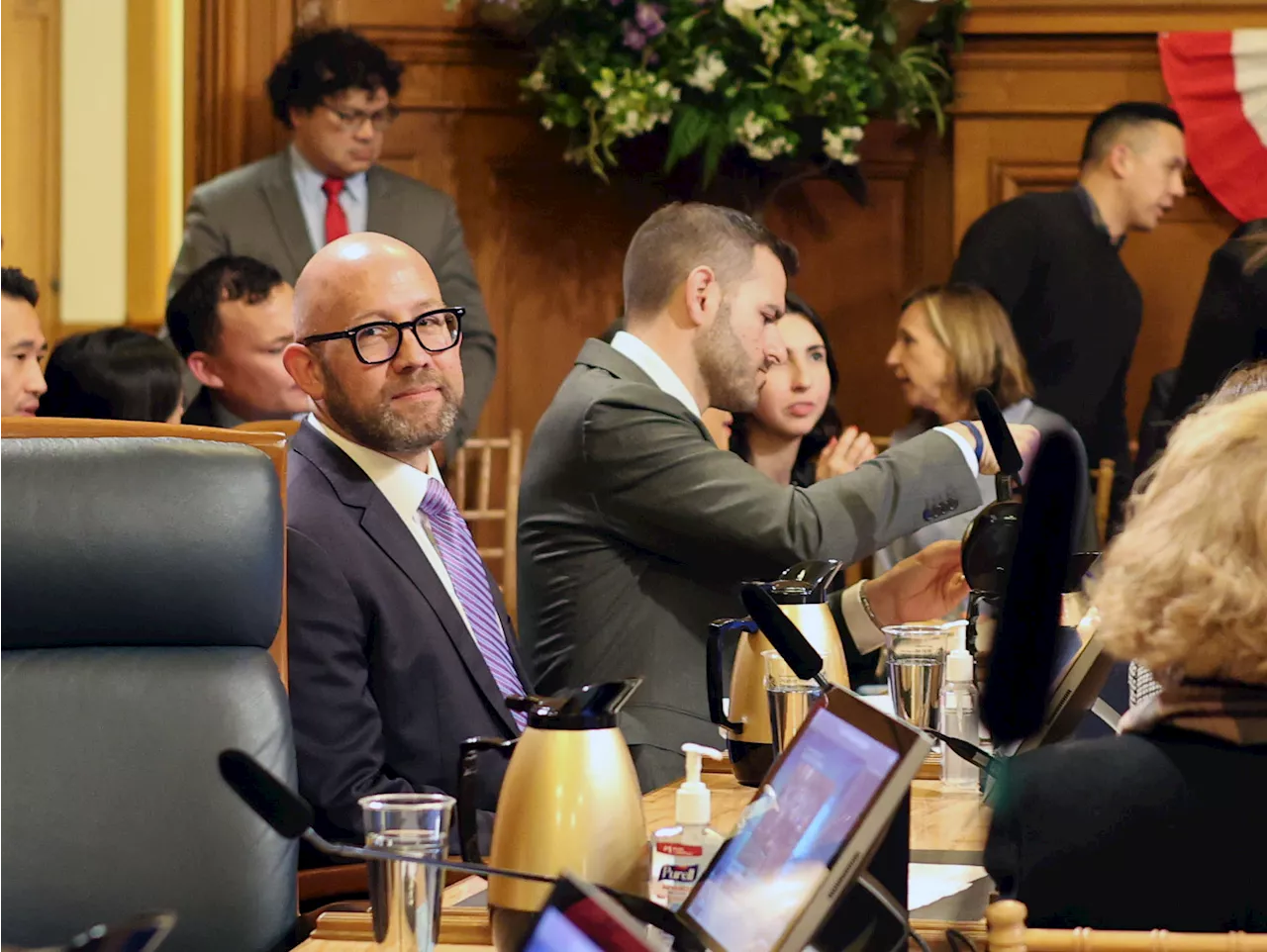 Rafael Mandelman is San Francisco’s Board of Supervisors presidentRafael Mandelman has obtained his much-coveted position of board president; Myrna Melgar staved off an electoral slugfest by bowing out
Rafael Mandelman is San Francisco’s Board of Supervisors presidentRafael Mandelman has obtained his much-coveted position of board president; Myrna Melgar staved off an electoral slugfest by bowing out
Read more »
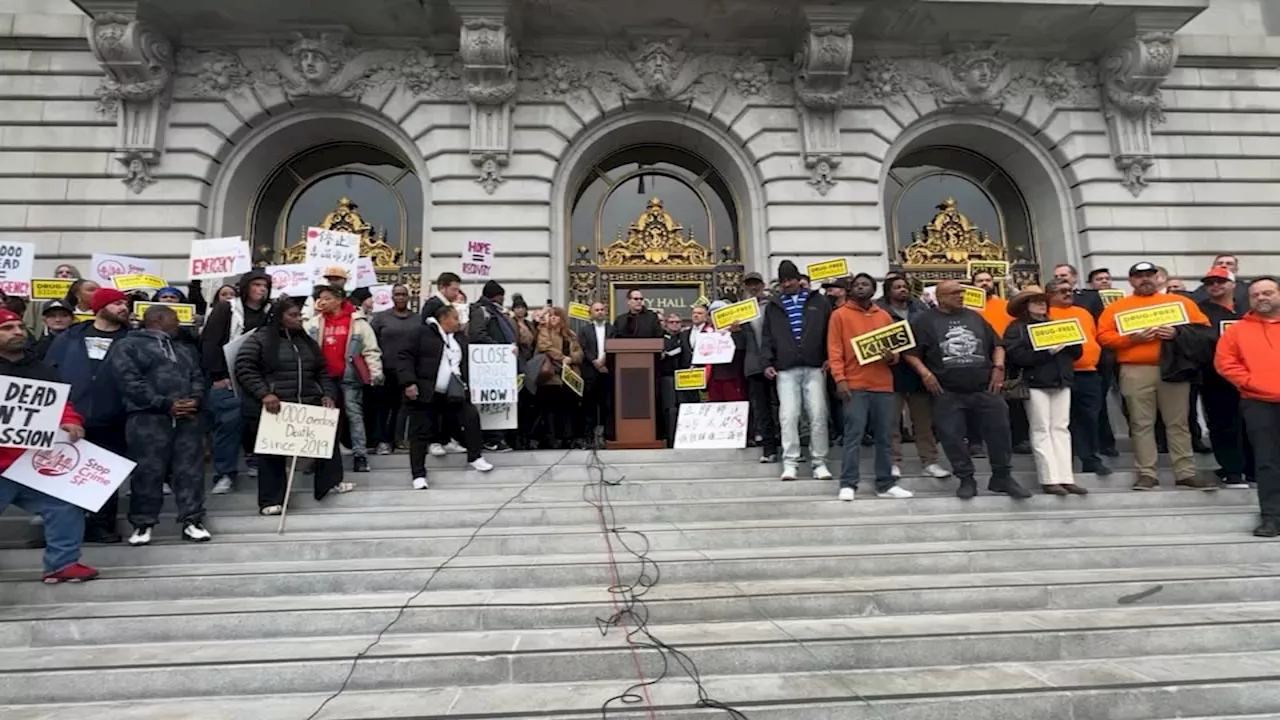 San Francisco Board of Supervisors to Negotiate Mayor's Plan to Address Fentanyl CrisisA San Francisco Board of Supervisors Committee is negotiating new Mayor David Lurie's plan to address the city's fentanyl crisis. Organizations across the city are backing the ordinance. Supporters rallied at City Hall, calling for urgent action to mitigate the crisis.
San Francisco Board of Supervisors to Negotiate Mayor's Plan to Address Fentanyl CrisisA San Francisco Board of Supervisors Committee is negotiating new Mayor David Lurie's plan to address the city's fentanyl crisis. Organizations across the city are backing the ordinance. Supporters rallied at City Hall, calling for urgent action to mitigate the crisis.
Read more »
 Kraken Co-Founder Sues San Francisco Co-op Board for Discrimination Over Crypto TiesJesse Powell, co-founder of the cryptocurrency exchange Kraken, alleges discrimination by a San Francisco co-op board that blocked his purchase of a luxury apartment. Powell claims the board's actions were motivated by prejudice against the crypto industry and his political affiliations.
Kraken Co-Founder Sues San Francisco Co-op Board for Discrimination Over Crypto TiesJesse Powell, co-founder of the cryptocurrency exchange Kraken, alleges discrimination by a San Francisco co-op board that blocked his purchase of a luxury apartment. Powell claims the board's actions were motivated by prejudice against the crypto industry and his political affiliations.
Read more »
 San Francisco Mayor Pushes for More In-Person WorkSan Francisco Mayor Daniel Lurie has directed his department heads to review remote work policies, aiming to increase in-person work among city employees. While not mandating a five-day in-office schedule, the mayor's administration emphasizes the need to ensure public services remain accessible during regular business hours. This move reflects Lurie's campaign promise to improve city government efficiency and address the economic challenges facing downtown San Francisco, potentially benefiting local businesses.
San Francisco Mayor Pushes for More In-Person WorkSan Francisco Mayor Daniel Lurie has directed his department heads to review remote work policies, aiming to increase in-person work among city employees. While not mandating a five-day in-office schedule, the mayor's administration emphasizes the need to ensure public services remain accessible during regular business hours. This move reflects Lurie's campaign promise to improve city government efficiency and address the economic challenges facing downtown San Francisco, potentially benefiting local businesses.
Read more »
